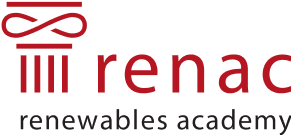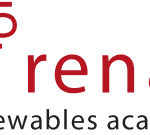This website uses cookies so that we can provide you with the best user experience possible. Cookie information is stored in your browser and performs functions such as recognising you when you return to our website and helping our team to understand which sections of the website you find most interesting and useful.
Customer-specific programmes
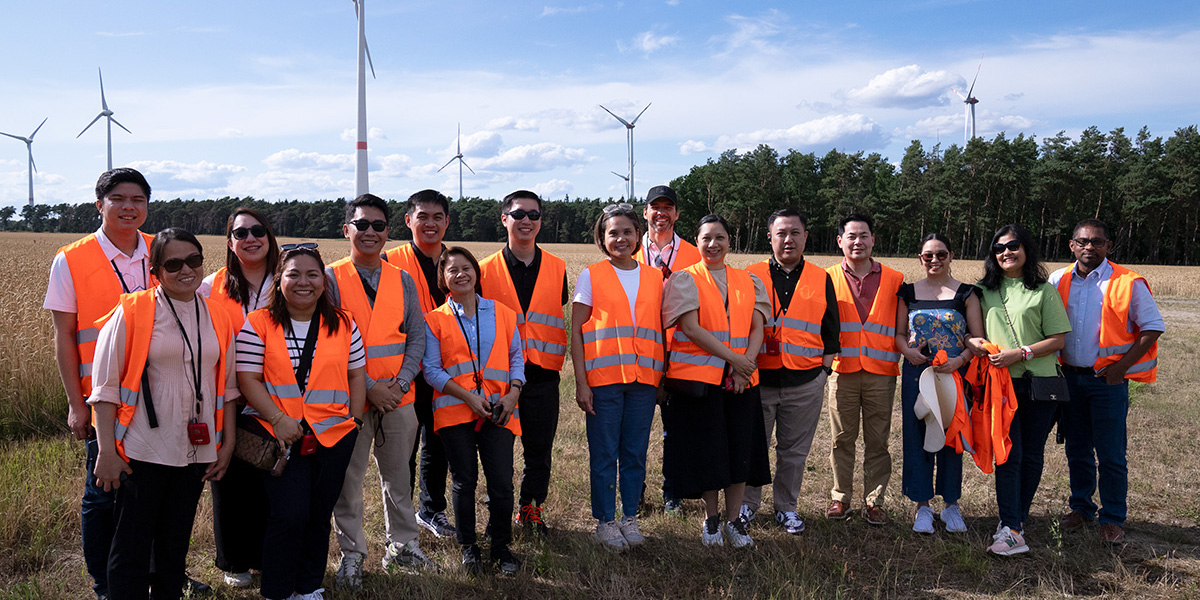
Job requirements in the green energy markets are complex and manifold. To ensure a company or organisation success, employees need extensive skills and up-to-date know-how.
RENAC customer-specific programmes offer the best way to meet participants’ training objectives:
- Analysis of participants’ capacity needs
- Selection of training contents and methods according to prior knowledge and needs
- The most suitable trainers
- Development of comprehensive materials with the highest quality standards
- Implementation of the training
Additionally, the training can be adjusted in duration and depth, organised for groups of various sizes and adapted to cover various technologies. Clients can determine when and where the training takes places.
Filter and search
Type
Name
Duration
Study time
Info
- carbon pricing, NDC implementation, principles of climate finance, sources of climate finance, UNFCCC
hours
Content:
- Principles of climate finance
- Sources and mechanisms of climate finance
- Frameworks to deliver finance for climate action
- Measurement, Reporting and Verification
Learning objectives:
After completing this online course, participants will be able to:
- compare the roles and respective contribution of the main players and institutions involved in the climate finance landscape
- distinguish between the different sources and mechanisms of climate finance
- assess the suitability of various sources and mechanisms for specific projects
- analyse practical examples of climate finance concepts
Target group:
This training suits those who:
- Want to have an overview on the climate finance landscape, its mechanisms and institutions
- Aim to make use of climate finance options for their project or as a financial institution
- Are responsible for business development in large institutions that want to engage in international climate finance schemes
- climate finance overview, Columbia, Costa Rica, El Salvador, Guatemala, Honduras, Latin America, Nicaragua, Panama, Peru
hours
Content:
- Financing climate action in Latin America
- International climate finance options in Latin America
- Climate finance landscape of Peru
- Climate finance options for Peru
- Climate finance landscape of Colombia
- Climate finance options for Colombia
- Climate finance landscape of Guatemala, El Salvador y Honduras
- Climate finance options for Guatemala, El Salvador y Honduras
- Climate finance landscape of Costa Rica, Panamá y Nicaragua
- Climate finance options for Costa Rica, Panamá y Nicaragua
Learning objectives:
After completion of this course, participants will be able to:
- Compare different climate finance options and select the most suitable one for his/her company or project
- Describe principles and aims of the main international climate finance options for Latin American countries (other than the Green Climate Fund) and explain how to access these funds
- Describe principles and aims of country-specific climate finance options for their country and explain how to access these funds
Target group:
This training suits those who:
- Want to have an overview on the climate finance options in Latin America as a region and in selected countries
- Aim to make use of climate finance options for their project or as a financial institution in Latin America
- climate finance overview, India, Indonesia, Philippines, Thailand, Vietnam
hours
Content:
- International climate finance options for SEA
- Domestic climate finance options for India
- Domestic climate finance options for Indonesia
- Domestic climate finance options for the Philippines
- Domestic climate finance options for Thailand
- Domestic climate finance options for Vietnam
Learning objectives:
After completion of this course, participants will be able to:
- Compare different climate finance options and select the most suitable one for his/her company or project
- Analyse principles and aims of the main international climate finance options for South-East Asian countries (other than the Green Climate Fund)
- Distinguish between the various procedures for access to these different funds
- Analyse the principles and aims of country-specific climate finance options for their country and explain the procedures to access these funds
Target group:
This training suits those who:
- Want to have an overview on the climate finance options in South-East Asia as a region and in selected countries
- Aim to make use of climate finance options for their project or as a financial institution in South-East Asia
- CGE, cost-benefit analysis, key socio-economic co-benefits, modelling tools, multi-criteria analysis
hours
Content:
- Introduction: Quantification of co-benefits: Assessment methods
- Scoping of effects: direct, indirect and induced effects
- Scoping: gross and net effects
- Methodologies for assessing/evaluating co-benefits
- Introduction to modelling tools
- Key socio-economic co-benefits: jobs and employment, climate and environment, Health Energy Access Energy Security, local economic development
- Key socio-economic co-benefits in South Africa, India, Vietnam and Turkey
Learning objectives:
After completion of this course, participants will be able to:
- Develop causal chains for an assessment
- Interpret, communicate and commission methods for quantitative assessment of co-benefits
- Interpret findings of co-benefit analyses considering possible unwanted impacts and identifying the net-effects
- Identify indicators and data sources for quantification of key co-benefits (Jobs/employment, air pollution, health, energy access, local economic development, energy security)
- Commission and interpret co-benefit analyses and effectively communicate its results
- Prepare schematic cost-benefit analyses
- Interpret the findings of co-benefit analyses for re-formulating RE policies
Target group:
This training suits those who:
- are developing strategies and roadmaps for sustainable power supply systems
- want to include arguments on social, environmental and economic advantages or renewable energy in their argumentation
- interested in the beneficial side effects of renewable energy in climate change mitigation
- co-benefits, India
hours
Content:
• Methodology of the assessment report
• Key results of the assessment report
• Policy recommendations of the assessment report
Countries available:
- India
Learning objectives:
After completion of this course, participants will be able to:
- Describe the dual methodological approach used to assess viability of solar-powered mini-grids to drive and support economic growth in rural India
- Describe the identified co-benefits of mini-grids
- Explain how RE-powered mini-grids can potentially improve the standard of living
Target group:
- co-benefits, Mexico
hours
Content:
- Background
- Results and main findings
Learning objectives:
At the end of this course, the reader will be able to:
- Explain how the National Development Plan can support the energy transition in Mexico.
- Determine the co-benefits that could be developed in renewable energy and energy efficiency investment processes
- Identify the methodology used to determine the main co-benefits that can be developed and implemented for policy making.
Target group:
- co-benefits indicators, definition, economics, environmental, political, social
hours
Content:
- Co-benefits of climate change mitigation
- Climate and environmental related co-benefits
- Economic co-benefits
- Social co-benefits
- Political / Institutional co-benefit
- Indicators of co-benefits
Learning objectives:
After completion of this course, participants will be able to:
- Develop causal chains for an assessment
- Interpret, communicate and commission methods for quantitative assessment of co-benefits
- Interpret findings of co-benefit analyses considering possible unwanted impacts and identifying the net-effects
- Identify indicators and data sources for quantification of key co-benefits (Jobs/employment, air pollution, health, energy access, local economic development, energy security)
- Commission and interpret co-benefit analyses and effectively communicate its results
- Prepare schematic cost-benefit analyses
- Interpret the findings of co-benefit analyses for re-formulating RE policies
Target group:
This training suits those who:
- are interested in the beneficial side effects of renewable energy in climate change mitigation
- co-benefits, South Africa
hours
Content:
- Background
- Key results and findings
Learning objectives:
After completion of this course, participants will be able to:
- Discuss the importance of renewable energy investment to marginalised communities
- Explain the co-benefits related to RE investment in marginalised communities
- Describe the methodology used to assess the impact of RE investment in marginalised communities
Target group:
- co-benefits, Turkey
hours
Content:
- Methodology of the assessment report
- Key results and findings
Countries available:
- Turkey
Learning objectives:
After completion of this course, participants will be able to:
- Identify and assess the quantitative and qualitative data sets presented in the course
- Describe the methodology used to assess domestic value chains in the renewable energy sector
- Quantify industrial development and trade opportunities around renewables
- Support higher shares of renewables which are boosting domestic value creation and production sector
- Communicate and defend more ambitious renewable energy pathways
Target group:
- artificial intelligence, use cases
hours
Content:
• Artificial intelligence and its co-benefits
• AI terminology, concepts and algorithms
• Assessments of AI in the literature
• AI use cases in renewable energy
• Use case identification & employment
Learning objectives:
After completion of this course, participants will be able to:
- explain the place of artificial intelligence (AI), especially with regard to renewable energy.
- assess current AI applications around renewable energies and climate protection in the electricity sector.
Target group:
This training suits those who
- are executives, officials, directors and regulators working in the energy sector working in the field of energy policy & renewable energy
- are climate project developers and investors, professionals working in financing institutions, consultancies, and public organisations
need to know the relevant terminology, technologies, applications and types of Artificial Intelligence (AI), and opportunities to generate climate and related co-benefits through the rapidly broadening spectrum of AI applications.
- CSP, heat transfer fluids, parabolic trough, power tower, technology comparison, thermal storage
hours
Content:
• Market
• CSP Technologies
• Other components of CSP plants
• Comparison of CSP technologies
• The future of CSP
• Tri generation
Learning objectives:
After completion of this course, participants will be able to:
- Explain the functioning and global potential of concentrated solar power (CSP) plants
- Distinguish the different CSP technologies including their functionality, current state of the technology and advantages / disadvantages
- Describe various components of CSP plants
- Present CSP costs and cost trends
Target group:
This training suits those who are interested in renewable energy technologies
- case studies, cost comparison, financial modelling, financial viability, Sub-Sahara Africa
hours
Content:
- Costing Concepts, categories and metrics of green energy systems
- Operational and financial parameters defining PV and biogas projects
- Introduction to modelling tools to assess the viability of PV and biogas projects
- Discussion of case studies from different RE technologies
- Comparative analysis of different RE technologies
Learning objectives:
After completion of this course, participants will be able to:
- Understand the concepts of Life Cycle Costing and Levelised Cost of Energy, with their main metrics and calculation methods
- Familiarise with LCOE for different technologies
- Perform a simplified cash-flow analysis of energy projects, in order to compare project alternatives
Target group:
This training suits professionals who
- Intend to introduce and enhance the financing of green energy systems in their financial institution (e.g. bank managers and staff);
- Intend to promote green energy finance in the financial sector (e.g. policy and decision makers, public organisations)
- Aim at promoting investments in green energy systems among potential investors in the SME sector (e.g. project developers, representatives from associations, consultancies)
- Are potential investors for green energy system (e.g. SMEs, large cooperatives, project developers)
Content:
- Principles of climate finance
- Sources and mechanisms of climate finance
- Frameworks to deliver finance for climate action
- Measurement, Reporting and Verification
Learning objectives:
After completing this online course, participants will be able to:
- compare the roles and respective contribution of the main players and institutions involved in the climate finance landscape
- distinguish between the different sources and mechanisms of climate finance
- assess the suitability of various sources and mechanisms for specific projects
- analyse practical examples of climate finance concepts
Target group:
This training suits those who:
- Want to have an overview on the climate finance landscape, its mechanisms and institutions
- Aim to make use of climate finance options for their project or as a financial institution
- Are responsible for business development in large institutions that want to engage in international climate finance schemes
Content:
- Financing climate action in Latin America
- International climate finance options in Latin America
- Climate finance landscape of Peru
- Climate finance options for Peru
- Climate finance landscape of Colombia
- Climate finance options for Colombia
- Climate finance landscape of Guatemala, El Salvador y Honduras
- Climate finance options for Guatemala, El Salvador y Honduras
- Climate finance landscape of Costa Rica, Panamá y Nicaragua
- Climate finance options for Costa Rica, Panamá y Nicaragua
Learning objectives:
After completion of this course, participants will be able to:
- Compare different climate finance options and select the most suitable one for his/her company or project
- Describe principles and aims of the main international climate finance options for Latin American countries (other than the Green Climate Fund) and explain how to access these funds
- Describe principles and aims of country-specific climate finance options for their country and explain how to access these funds
Target group:
This training suits those who:
- Want to have an overview on the climate finance options in Latin America as a region and in selected countries
- Aim to make use of climate finance options for their project or as a financial institution in Latin America
Content:
- International climate finance options for SEA
- Domestic climate finance options for India
- Domestic climate finance options for Indonesia
- Domestic climate finance options for the Philippines
- Domestic climate finance options for Thailand
- Domestic climate finance options for Vietnam
Learning objectives:
After completion of this course, participants will be able to:
- Compare different climate finance options and select the most suitable one for his/her company or project
- Analyse principles and aims of the main international climate finance options for South-East Asian countries (other than the Green Climate Fund)
- Distinguish between the various procedures for access to these different funds
- Analyse the principles and aims of country-specific climate finance options for their country and explain the procedures to access these funds
Target group:
This training suits those who:
- Want to have an overview on the climate finance options in South-East Asia as a region and in selected countries
- Aim to make use of climate finance options for their project or as a financial institution in South-East Asia
Content:
- Introduction: Quantification of co-benefits: Assessment methods
- Scoping of effects: direct, indirect and induced effects
- Scoping: gross and net effects
- Methodologies for assessing/evaluating co-benefits
- Introduction to modelling tools
- Key socio-economic co-benefits: jobs and employment, climate and environment, Health Energy Access Energy Security, local economic development
- Key socio-economic co-benefits in South Africa, India, Vietnam and Turkey
Learning objectives:
After completion of this course, participants will be able to:
- Develop causal chains for an assessment
- Interpret, communicate and commission methods for quantitative assessment of co-benefits
- Interpret findings of co-benefit analyses considering possible unwanted impacts and identifying the net-effects
- Identify indicators and data sources for quantification of key co-benefits (Jobs/employment, air pollution, health, energy access, local economic development, energy security)
- Commission and interpret co-benefit analyses and effectively communicate its results
- Prepare schematic cost-benefit analyses
- Interpret the findings of co-benefit analyses for re-formulating RE policies
Target group:
This training suits those who:
- are developing strategies and roadmaps for sustainable power supply systems
- want to include arguments on social, environmental and economic advantages or renewable energy in their argumentation
- interested in the beneficial side effects of renewable energy in climate change mitigation
Content:
• Methodology of the assessment report
• Key results of the assessment report
• Policy recommendations of the assessment report
Countries available:
- India
Learning objectives:
After completion of this course, participants will be able to:
- Describe the dual methodological approach used to assess viability of solar-powered mini-grids to drive and support economic growth in rural India
- Describe the identified co-benefits of mini-grids
- Explain how RE-powered mini-grids can potentially improve the standard of living
Target group:
Content:
- Background
- Results and main findings
Learning objectives:
At the end of this course, the reader will be able to:
- Explain how the National Development Plan can support the energy transition in Mexico.
- Determine the co-benefits that could be developed in renewable energy and energy efficiency investment processes
- Identify the methodology used to determine the main co-benefits that can be developed and implemented for policy making.
Target group:
Content:
- Co-benefits of climate change mitigation
- Climate and environmental related co-benefits
- Economic co-benefits
- Social co-benefits
- Political / Institutional co-benefit
- Indicators of co-benefits
Learning objectives:
After completion of this course, participants will be able to:
- Develop causal chains for an assessment
- Interpret, communicate and commission methods for quantitative assessment of co-benefits
- Interpret findings of co-benefit analyses considering possible unwanted impacts and identifying the net-effects
- Identify indicators and data sources for quantification of key co-benefits (Jobs/employment, air pollution, health, energy access, local economic development, energy security)
- Commission and interpret co-benefit analyses and effectively communicate its results
- Prepare schematic cost-benefit analyses
- Interpret the findings of co-benefit analyses for re-formulating RE policies
Target group:
This training suits those who:
- are interested in the beneficial side effects of renewable energy in climate change mitigation
Content:
- Background
- Key results and findings
Learning objectives:
After completion of this course, participants will be able to:
- Discuss the importance of renewable energy investment to marginalised communities
- Explain the co-benefits related to RE investment in marginalised communities
- Describe the methodology used to assess the impact of RE investment in marginalised communities
Target group:
Content:
- Methodology of the assessment report
- Key results and findings
Countries available:
- Turkey
Learning objectives:
After completion of this course, participants will be able to:
- Identify and assess the quantitative and qualitative data sets presented in the course
- Describe the methodology used to assess domestic value chains in the renewable energy sector
- Quantify industrial development and trade opportunities around renewables
- Support higher shares of renewables which are boosting domestic value creation and production sector
- Communicate and defend more ambitious renewable energy pathways
Target group:
Content:
• Artificial intelligence and its co-benefits
• AI terminology, concepts and algorithms
• Assessments of AI in the literature
• AI use cases in renewable energy
• Use case identification & employment
Learning objectives:
After completion of this course, participants will be able to:
- explain the place of artificial intelligence (AI), especially with regard to renewable energy.
- assess current AI applications around renewable energies and climate protection in the electricity sector.
Target group:
This training suits those who
- are executives, officials, directors and regulators working in the energy sector working in the field of energy policy & renewable energy
- are climate project developers and investors, professionals working in financing institutions, consultancies, and public organisations
need to know the relevant terminology, technologies, applications and types of Artificial Intelligence (AI), and opportunities to generate climate and related co-benefits through the rapidly broadening spectrum of AI applications.
Content:
• Market
• CSP Technologies
• Other components of CSP plants
• Comparison of CSP technologies
• The future of CSP
• Tri generation
Learning objectives:
After completion of this course, participants will be able to:
- Explain the functioning and global potential of concentrated solar power (CSP) plants
- Distinguish the different CSP technologies including their functionality, current state of the technology and advantages / disadvantages
- Describe various components of CSP plants
- Present CSP costs and cost trends
Target group:
This training suits those who are interested in renewable energy technologies
Content:
- Costing Concepts, categories and metrics of green energy systems
- Operational and financial parameters defining PV and biogas projects
- Introduction to modelling tools to assess the viability of PV and biogas projects
- Discussion of case studies from different RE technologies
- Comparative analysis of different RE technologies
Learning objectives:
After completion of this course, participants will be able to:
- Understand the concepts of Life Cycle Costing and Levelised Cost of Energy, with their main metrics and calculation methods
- Familiarise with LCOE for different technologies
- Perform a simplified cash-flow analysis of energy projects, in order to compare project alternatives
Target group:
This training suits professionals who
- Intend to introduce and enhance the financing of green energy systems in their financial institution (e.g. bank managers and staff);
- Intend to promote green energy finance in the financial sector (e.g. policy and decision makers, public organisations)
- Aim at promoting investments in green energy systems among potential investors in the SME sector (e.g. project developers, representatives from associations, consultancies)
- Are potential investors for green energy system (e.g. SMEs, large cooperatives, project developers)
Target Groups
Public sector officials for legal frameworks, regulation and implementation:

- Ministries
- Regulators
- Local administrations
Multipliers and development organisations:

- Development corporations
- Energy agencies
- International financing institutions
- NGOs
Private sector:

- Project developers
- System integrators
- Engineers and technicians
- Investors
- Financing institutions
- Grid operators
Capacity building and dissemination sector:

- Public and private training institutions
- Vocational training institutions
- Universities
Value Chain
We design and implement customer-specific programmes and services along the value chain in a holistic concept.
Our approach to Renewable Energy (RE) and Energy Efficiency (EE) is manifold: technology related knowledge is the basis and then each RENAC training and service focus on technical, economic, legal or project related aspects according to the target group. RENAC is also very active in international business matchmaking and market development services.
In our capacity building services we supply a variety of programmes to train trainers, to build training centres and to establish quality assurance processes.
Our Training Concept
Customer-Specific Programmes – what does it mean?
We offer customer-specific programmes according to client needs and participant job requirements in all green energy sectors. Based on an analysis of requested knowledge or specific job tasks and the level of existing knowledge, we develop a training concept proposal.
The concept includes recommendations for online or in-person trainings, or both. We develop the training concept taking the given resources on budget and learning time into account. After feedback from the client, we fine-tune the concept for approval.
Depending on the needs of our clients, we offer different levels of trainings (basic, intermediate, and advanced).
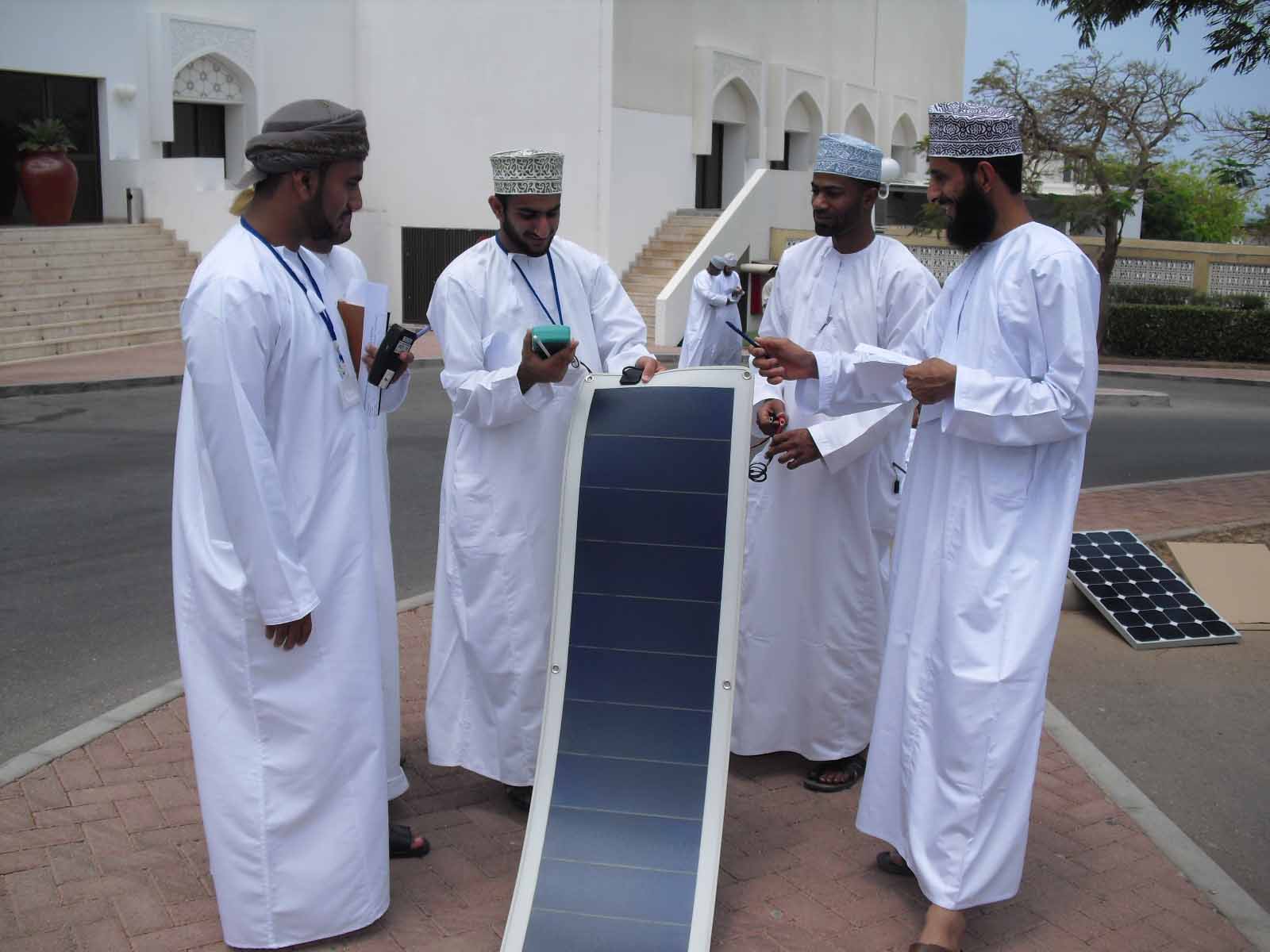
Service Catalogue
Find detailed information about the programme that best aligns with your needs and preferences.
Are you interested in a Customer-specific programmes?
Kindly fill out this questionnaire and attach it to the form on the right:
© 2024 | Renewables Academy (RENAC) AG
